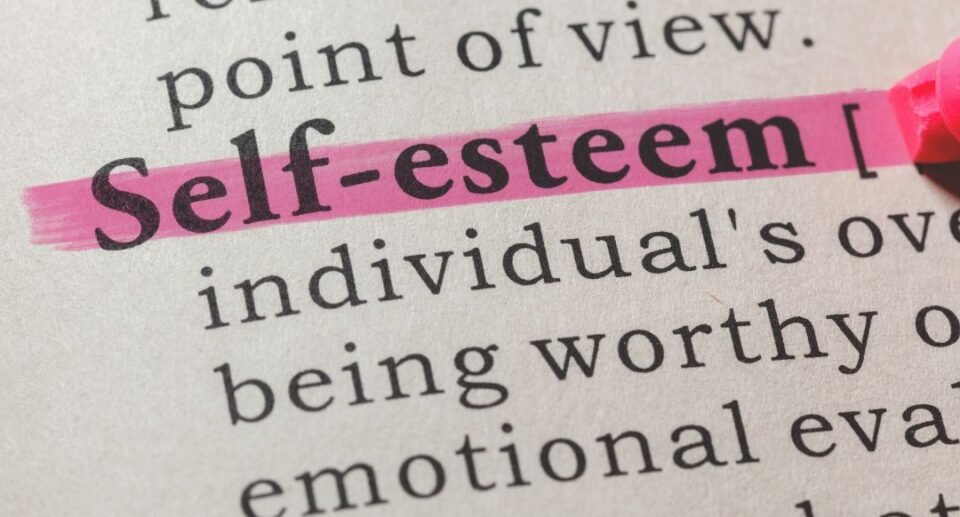Why You Sabotage Yourself—and How Shadow Work Can Set You Free

I want to start this blog with a question: have you ever found yourself overreacting to something small? Maybe a coworker made an offhand comment, and you spent the rest of the day seething. Or maybe you’re stuck in a pattern—dating the same kind of toxic partner, quitting jobs just when things start to go well, or procrastinating on projects that matter the most to you. You tell yourself, I won’t do this again, but then you do. Over and over.
For me, it was the way I’d snap at people for no reason. Someone would ask for my opinion, and I’d get defensive, acting like they were attacking me. Or I’d judge people harshly for traits I swore I didn’t have—selfishness, laziness, being too emotional. It was exhausting, not just for the people around me, but for me too. I didn’t know why I kept reacting this way. I figured I just needed to get my act together, but no amount of self-help books or morning routines fixed it.
And then I discovered shadow work.
It sounded… dramatic. Like something a villain in a fantasy novel would do. But the truth? Shadow work is real, and it’s raw. It’s about digging into the parts of yourself you’ve been ignoring—the things you’re too ashamed to admit, even to yourself. It’s not about “fixing” yourself, though. It’s about understanding why you are the way you are—and, more importantly, how to stop letting those buried parts of you run the show.
What Is the Shadow, and Why Does It Mess with Us?
Here’s the thing: we all have a shadow. It’s the part of us that we’ve shoved into the background—our fears, insecurities, bad habits, even our hidden talents. These are usually the parts of us that, at some point, we were told were “bad” or “unacceptable.”
Maybe you grew up in a family where anger wasn’t allowed, so you learned to suppress it. Or you were praised for being helpful, so you ignored your own needs to keep people happy.
The problem is, those parts don’t go away just because we ignore them. They fester. And they come out in sneaky, destructive ways—like snapping at people, sabotaging our own success, or staying in toxic relationships because we don’t believe we deserve better.
My First (Messy) Attempt at Shadow Work
When I first heard about shadow work, it freaked me out. I mean, who wants to face the ugliest parts of themselves? But at the same time, I was tired of feeling stuck. So, I decided to give it a shot.
I started with journaling because it felt safe. I wrote down everything that annoyed me about other people—every little thing that got under my skin. My list was embarrassingly long. (Seriously, if someone chewed too loud, I was ready to write a novel about it.) Then, I asked myself: What does this say about me?
Spoiler alert: it said a lot.
For example, I hated when people were “lazy.” But when I dug deeper, I realized I was terrified of being seen as lazy myself. I’d been taught that my worth was tied to how productive I was. So, I worked myself into the ground, and when I saw someone else resting, I judged them because I couldn’t allow myself to do the same.
It was like peeling back layers of an onion. Every time I uncovered one truth, there was something deeper underneath. And let me tell you, it’s not fun to admit that you’re projecting your insecurities onto other people. But it’s also freeing.
The Real-Life Impact of Shadow Work
Shadow work isn’t just about having “aha” moments in your journal. It changes how you show up in the world.
One of the biggest breakthroughs for me was realizing how much of my defensiveness came from fear. I was afraid of being wrong, afraid of being judged, afraid of looking weak. Once I understood that, I could start responding differently. Instead of snapping at people when they gave me feedback, I started pausing and asking myself, Why am I getting so upset? Usually, it wasn’t about them—it was about me.
This shift didn’t happen overnight. At first, I still reacted the same way. But slowly, I started catching myself in the moment. And eventually, I got to a place where I could accept feedback without spiraling into defensiveness. It felt like a superpower.
Another huge change was in my relationships. I stopped judging people so harshly and started seeing them—and myself—with more compassion. Shadow work taught me that the things I judged in others were often things I was struggling with too. Once I realized that, it was easier to let go of the judgment and focus on connection instead.
How to Start Your Own Shadow Work
If this all sounds like something you need in your life, here’s how to get started. (And trust me, it’s not as scary as it sounds.)
1. Pay Attention to Your Triggers
Think about the last time you overreacted to something. What was the real issue? For example, if you got irrationally angry at your partner for leaving dishes in the sink, was it really about the dishes? Or was it about feeling unappreciated? Shadow work starts with asking these kinds of questions.
2. Journal Like You Mean It
Write down what bothers you about other people. Then, flip it back on yourself. Are you judging them because they remind you of something you don’t like about yourself? Be honest—this part is hard, but it’s where the magic happens.
3. Work with Archetypes
This one sounds fancy, but it’s just about recognizing different aspects of yourself. For example, I found it helpful to think about my “Inner Critic” as a separate part of me. When it showed up, I could acknowledge it without letting it take over.
4. Practice Self-Compassion
Shadow work isn’t about beating yourself up. It’s about understanding where your behaviors come from and learning to integrate those parts of yourself. Be gentle with yourself—it’s a process.
Why Shadow Work Matters
At the end of the day, shadow work isn’t about becoming perfect. It’s about becoming whole. It’s about understanding that the parts of you that you’ve been hiding—your anger, your fear, your vulnerability—aren’t things to be ashamed of. They’re part of what makes you human.
Since starting this journey, I’ve noticed changes in every area of my life. I’m more patient, more present, and (surprisingly) more confident. I still have my moments—shadow work isn’t a one-and-done thing—but I feel lighter, like I’ve finally stopped carrying around baggage I didn’t even know I had.
If you’ve been feeling stuck, frustrated, or like you’re repeating the same patterns over and over, I hope this blog inspires you to take a closer look at your shadow. It’s not easy, but trust me—it’s worth it.
So grab a journal, pour yourself a cup of tea (or wine, no judgment), and start exploring. You might be surprised by what you find. And when you do, don’t forget to give yourself credit for having the courage to face it.
Because that’s what shadow work is all about: turning the parts of yourself you’ve been running from into the parts of yourself you’re proud to embrace.









